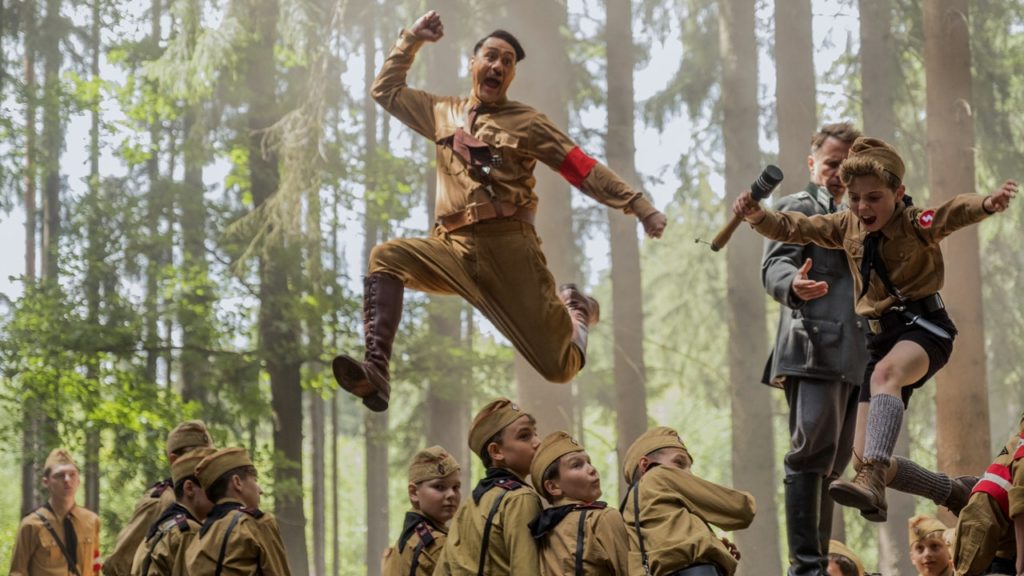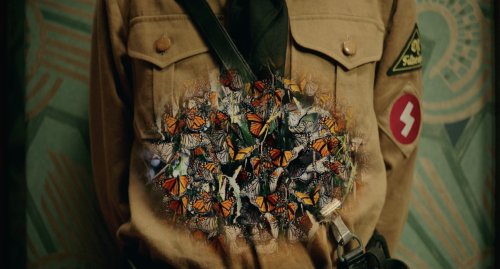'Eve's Bayou' Brings Post-Memory Towards West-Indian Culture
In an all-black community in Louisiana, a young girl learns her father has committed infidelity and turns to hoodoo to seek justice.


Set in the Third Reich, Jojo Rabbit (2019) was surprisingly goofier than I imagined it to be. When I read its premise, I was nervous about how Taika Waititi was going to pull off Adolf Hitler being a young boy’s imaginary friend, but it works! While watching the film, I couldn’t help but compare Jojo Rabbit to Life is Beautiful (1998), an Italian film that is centered on a father and son who’ve been sent to a concentration camp. Both films bring light into a dark period with an emphasis on humor; however, I enjoyed Jojo Rabbit‘s satirical approach. Jojo Rabbit sets itself apart from comedies that are set during Nazi Germany because Taika Waititi invites the audience to be a child once more. The story is focused on the young boy, Jojo, and his imagination is seen throughout the film, one of them being Adolf Hitler as his imaginary friend. This can be a dangerous decision to make a parody of Hitler, since there have been other filmmakers that have done the same, but have gotten criticism for it, like Charlie Chaplin in The Great Dictator (1941). But, Jojo Rabbit pulled it off. I don’t see Jojo’s imaginary friend as a parody of Hitler even though he is designed to be a goofball and idiotic at times, the imaginary Hitler is a manifestation of Jojo’s nationalism and biases of Jews. Jojo’s imagination makes us empathize with him, to remember what it was like when we once had imaginary friends or the thrill to seek adventure, and wanting to be a hero, all to make your childhood worthwhile.

When I was little, I remembered being fascinated by the marvel anti-hero Elektra, when I told my mom I wanted to be her she felt awkward because Elektra is, an assassin which wouldn’t be a good role model for me. To an extent, I understand Jojo choosing Hitler as not only his imaginary friend, but someone he could talk to; the imaginary Hitler gave him confidence and the desire to be masculine. Waititi also gives us Jewish humor, like, when Jojo tells Elsa, a Jewish Girl hiding in his attic, that the Rabbis use the penises they cut off as earplugs. The Jewish humor doesn’t mock Jewish traditions, but rather the beliefs of anti-Semites. There are fantastical elements that, Waititi uses in the film other than the imaginary friend. There’s a scene where Jojo develops a crush on Elsa and when the camera moves to his stomach we see butterflies. I thought that was a nice Ameliè (2002) approach to show how imaginative Jojo is. Overall, the movie balances its lightheartedness with some melancholy tones perfectly. It’s remarkable and profound for people to smile and laugh at a film that has a dark context, it shows us how comedy movies have evolved over time.

Related lists created by the same author
In an all-black community in Louisiana, a young girl learns her father has committed infidelity and turns to hoodoo to seek justice.
Related Movie / TV / List / Topic
Two Summers ago, on May 27th, 2022, the theatrical cinematic realms were re-awakened from their post-COVID dormant state of being by a little film titled "Top Gun: Maverick". It re-introduced us to the absolute elation of seeing not only a highly anticipated (and, granted, 36 years in the making!) sequel, but the return of the quintessential Summer blockbuster to witness on the BIG screen again.